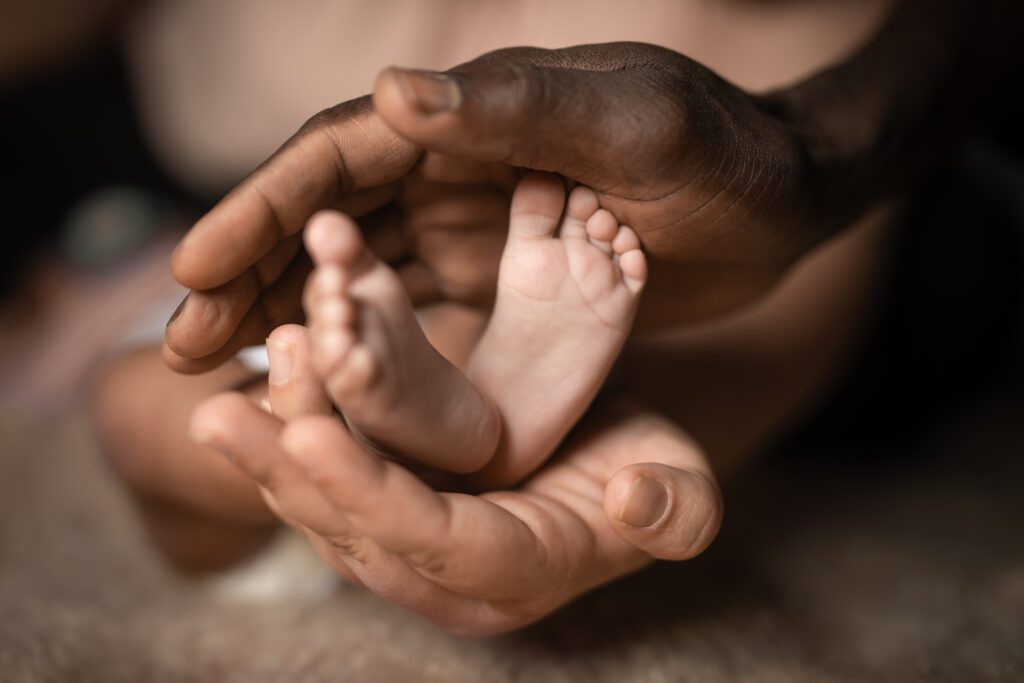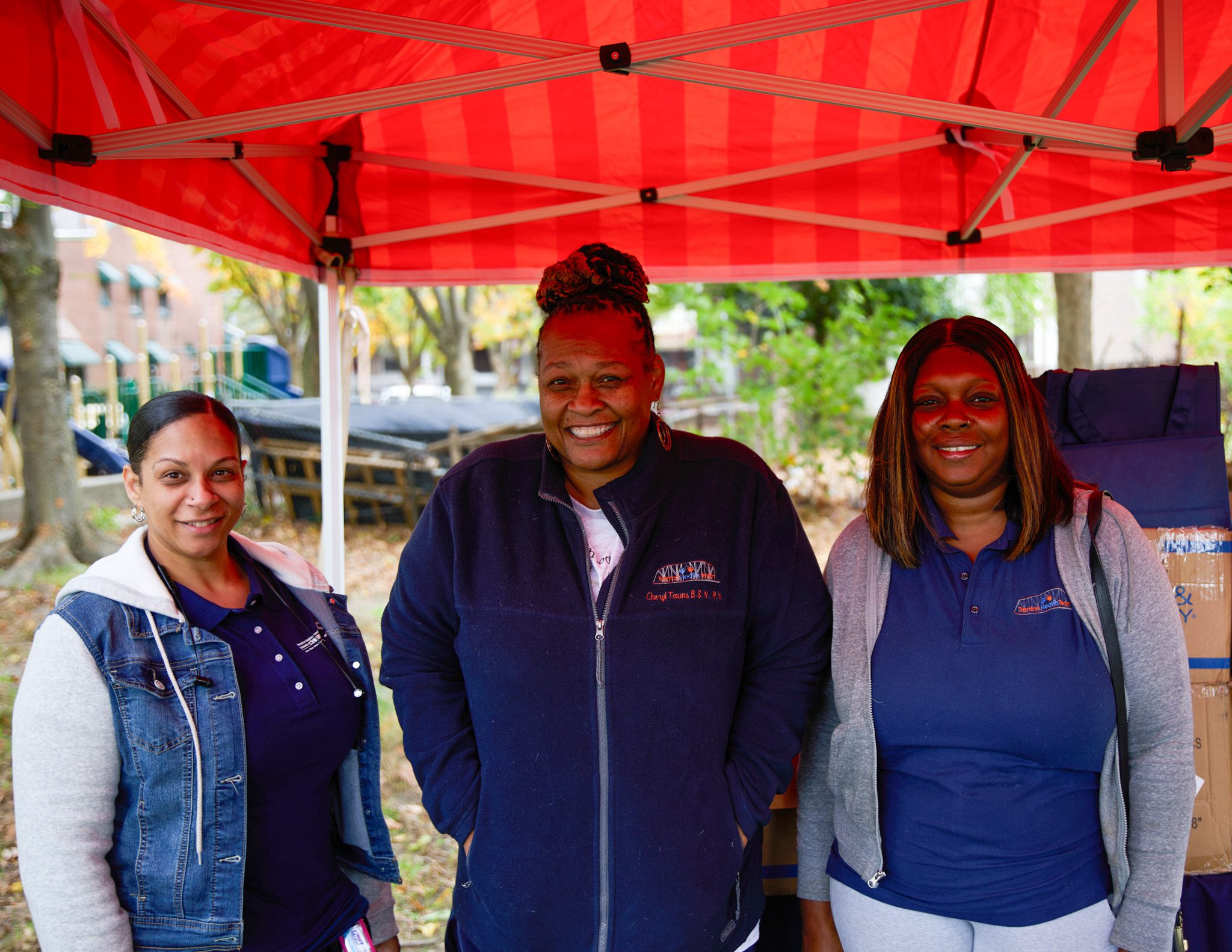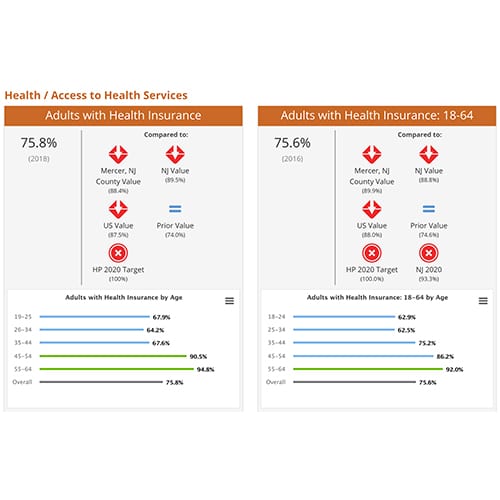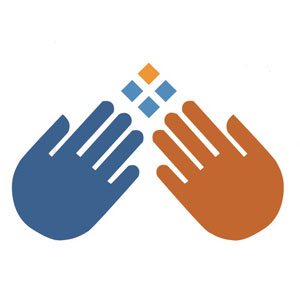Maternal & Infant Health

In New Jersey, Black mothers are more than twice as likely to not receive any prenatal care compared to all other racial/ethnic groups. Nationwide, more than 77% of women initiate prenatal care in the first trimester of pregnancy. In New Jersey, the rate is 72% and in Mercer County rates of early prenatal care are lower, with 63% of Mercer county mothers and fewer than half of Trenton mothers attending a prenatal visit in the first trimester (2016).
Embedded within these persistent disparities are the ongoing effects of institutional racism—racism that began with the enslavement of Black people, was embedded in our earliest institutions, and has continued to influence policies and practices ever since, according to the National Institute for Children’s Health Quality.
Of all pregnancy-related deaths in New Jersey between 2009-2013, more than 46 percent were Black women — five times that of their white counterparts. Black babies still die at three times the rate of white newborns and women of all races are more likely to lose their lives during childbirth here than in many other states.
In Trenton, 57.8% of women reported “adequate” prenatal care–care beginning by the end of the fourth month of pregnancy and receiving at least 80% of recommended prenatal visits in 2017. This falls far below rates for Mercer County (71.1%) and New Jersey (72.3%).
In 2015, Trenton had a teen birth rate (age 17 and younger) nearly six times higher than the state average (30.5/1,000 to 5.8/1,000 live births). Having one or more pregnancies before age 17 is often a predictor for poor future educational and economic attainment.
What is THT Doing About It?
THT is working to address gaps in the maternal and infant health landscape. Our Maternal Health Stakeholders group meets regularly as a forum for sharing ideas and collaborating on projects. The group is open for anyone to join (click here)
From 2021 to 2023, we completed a pilot of the Family Connects universal home visitation program. Working with the Burke Foundation, Central New Jersey Family Health Consortium, and the New Jersey Department of Children and Families, the program successfully launched across Mercer County and informed the statewide rollout that began in 2024.
The Safer Childbirth Cities project is wrapping up after five successful years of increasing doula services, improving access to wraparound supports for people seeking prenatal care, and utilizing data to alert providers of maternal morbidity risks. In 2024, THT is working with the Burke Foundation and others to address gaps in Black participation in maternal health programs utilizing a community-based participatory approach.










